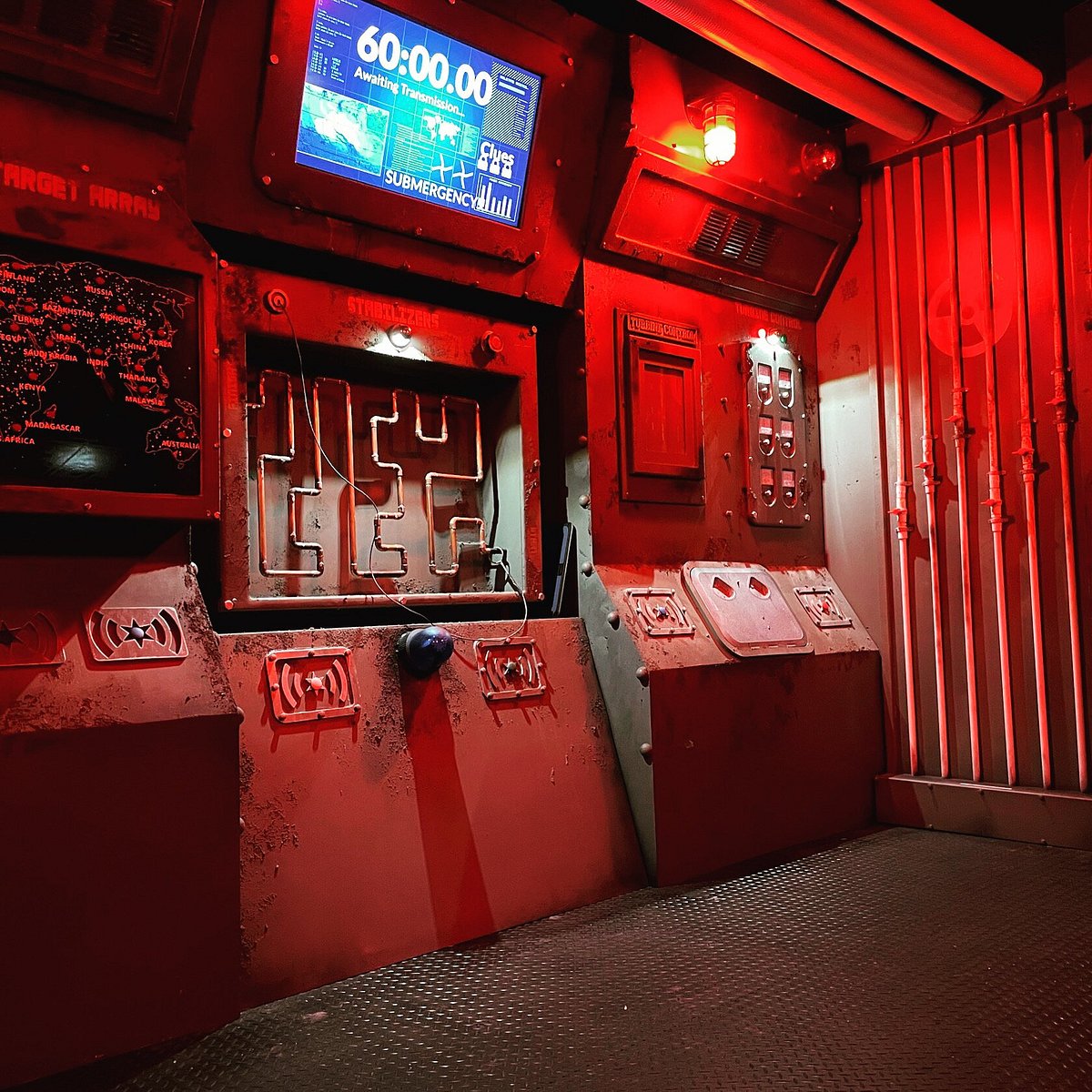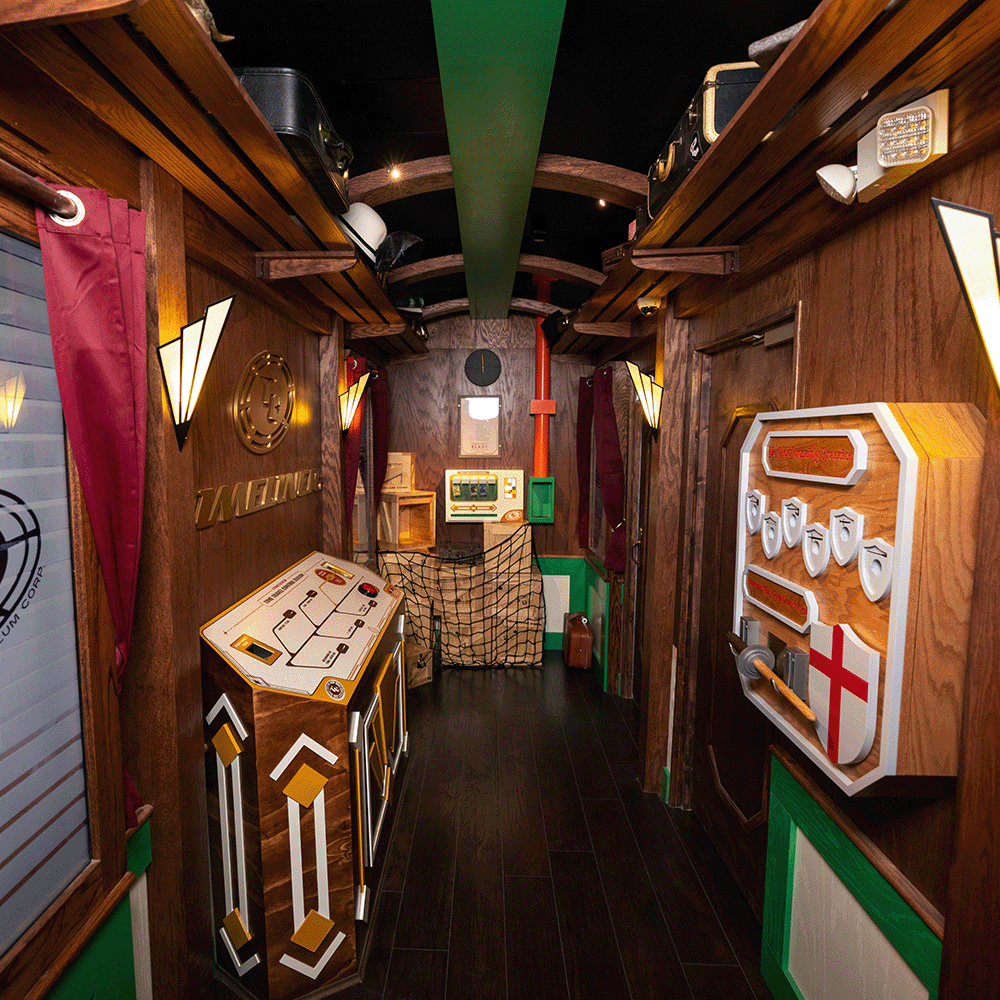Team Strategies: Just How to Work together Successfully in an Escape Room
Navigating the complexities of an escape space requires even more than simple enthusiasm; it requires a well-coordinated approach based in clear communication, calculated duty tasks, and experienced time management. Teams must proactively listen per participant's insights, appoint functions that align with private toughness, and maintain routine check-ins to guarantee focus and prevent redundancy. By cultivating an environment that values communication and adaptability, teams can substantially increase their effectiveness and success prices. The subtleties of these methods can change the experience, however exactly how precisely can they be carried out to take full advantage of the capacity for success?
Establish Clear Interaction

To help with clear interaction, it is vital to assign a main factor of contact for details dissemination. This role involves summarizing findings and proposed methods to guarantee everybody stays on the same page. Furthermore, adopting an organized technique to discussions can prevent chaotic exchanges. For instance, short, focused updates from each staff member can keep the team educated without overwhelming them with details.

Assign Duties Purposefully
While clear interaction establishes the foundation for effective team effort, assigning roles purposefully ensures that each team member's toughness are used effectively. In a getaway room situation, the time-sensitive and intricate nature of challenges necessitates a well-organized strategy to job delegation. By identifying and leveraging individual competencies, teams can maximize their problem-solving capacities and improve general efficiency.
First, analyze the one-of-a-kind skills and attributes of each individual. A person with an eager eye for information may succeed in locating hidden objects, while a sensible thinker might be much better fit to resolving problems. It's equally important to have a leader that can supervise progress, take care of the timeline, and make definitive telephone calls when essential. This function frequently calls for solid organizational and social abilities.
2nd, make certain that functions are adaptable and versatile. As new obstacles emerge, the team has to have the ability to pivot, reapportioning tasks as needed. This versatility aids maintain energy and stops bottlenecks that might take place because of rigid function assignments.
Inevitably, a critical strategy to role project not only optimizes the staminas of each staff member but also cultivates a natural setting, driving the group in the direction of a successful getaway.
Make Use Of Diverse Abilities
Recognizing and taking advantage of the varied abilities within your team can significantly elevate your efficiency in a getaway area. Each employee brings special staminas to the table, and efficiently leveraging these abilities can speed up analytical and boost general efficiency. For instance, a staff member with solid logical skills could succeed at figuring out complex codes or patterns, while an additional with keen observational abilities might quickly find surprise clues that may neglect.
Urge group participants to articulate their insights and concepts immediately, making sure that all prospective remedies are considered. see here Additionally, designating jobs that line up with each member's strengths can stop bottlenecks and make certain that progression is continual.
Furthermore, diversity in abilities often equates to diversity in assuming designs, which is indispensable in a retreat area setup. While some difficulties might need logical reasoning and accuracy, others might profit from imaginative and association of ideas. By recognizing and leveraging this variety, groups can deal with a wider series of challenges extra efficiently, thus enhancing their possibilities of an effective retreat.
Manage Time Effectively

Furthermore, prevent one-track mind. If a puzzle is taking as well long, turn staff member or proceed to another difficulty, returning later with fresh viewpoints. Communication is vital-- keep everybody updated on fixed problems and continuing to be jobs to avoid repetitive initiatives.
Finally, make use of any kind of tips or clues sparingly yet strategically - best escape room. Knowing when to request assistance can save valuable time. By adhering to these time monitoring principles, groups can dramatically boost their possibilities of an effective and delightful getaway space experience
Debrief and Mirror
Reflection is an important facet of group advancement and enhancement in the context of escape spaces. When the difficulty is finished, whether efficiently or otherwise, it is important for the group to involve in a structured debriefing session. This process allows group participants to analyze their performance, identify staminas, and determine locations for enhancement.
Start the debrief by reviewing what worked out. Highlight particular instances of effective interaction, analytic, and cooperation. Acknowledging these favorable actions enhances them and urges their repeating in future difficulties.
Go over moments of confusion, miscommunication, or inefficient strategies. Motivate an open and positive discussion where team participants can share their point of views without fear of criticism.
Verdict
In conclusion, successful collaboration in a retreat space is predicated upon clear interaction, strategic duty projects, the efficient use of varied abilities, and competent time management. By producing a cohesive and adaptive group environment, the possibility of effectively solving puzzles and browse around this site attaining the purpose of getting away the space is dramatically boosted.
Comments on “Best Escape Room Experience-- Exciting Games and Puzzles for Teams”